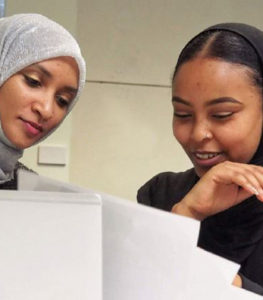COVID fallout worse for disadvantaged – reports
Disadvantaged Victorians, including migrants, refugees and people from emerging communities, are twice as likely as other Australians to vulnerable to the effects of the COVID-19 pandemic, two new report have found.
A report, by the Brotherhood of St Laurence (BSL), found people from disadvantaged backgrounds more unable to quarantine during the pandemic due to insecure work, putting them at increased risk of contracting the disease.
 And a paper by the Australian National University says Australia has lost 1.3 billion working hours, worth almost $50 billion, since February 2020, with migrants from non-English speaking countries and older Australians bearing the brunt of coronavirus shutdowns.
And a paper by the Australian National University says Australia has lost 1.3 billion working hours, worth almost $50 billion, since February 2020, with migrants from non-English speaking countries and older Australians bearing the brunt of coronavirus shutdowns.
“On average, the lost hours were worth $5,885 in forgone production for every working Australian and among employed migrants from non-English speaking backgrounds, the average loss of hours was 245 hours, more than those born in Australia,” the paper said.
The BSL report found 44 per cent of workers in its employment program lacked access to sick leave in casual jobs, compared with 24 per cent in the general population.
Almost half of the 189 workers in the program – which operates across area with low-socioeconomic profile and high levels of cultural diversity – such as Dandenong, Epping and Flemington.
Many were on temporary visas, making them ineligible for JobKeeper and JobSeeker, the BSL report said.
“There is a systemic issue that’s driving the crisis, with people being forced to find work in different casual workplaces to survive,” the report said.
The report said many precarious workers were finding casual work in aged care or security, which doesn’t provide have sick leave.
The ‘Voices from the Frontline’ report also found many of the workers did not know about the state government’s COVID-19 sick leave or testing payments, due to translation and messaging problems.
It said others did not apply for JobKeeper because of fears their work before the pandemic would be scrutinised.
The top three industries in which these at risk workers were employed were healthcare (20 per cent), manufacturing (13 per cent) and administration (13 per cent).
The report also found asylum seekers experienced extreme challenges due to their temporary visa status, lack of social safety net and perceived impacts on their long-term residency.
It said people with mental health conditions, trauma or experiencing family violence, had their anxiety levels raised.
“For people of refugee backgrounds, the supermarket rations and lockdown are triggering past experiences in refugee camps or authoritarian regimes back home,” the report said
“Whilst for most Victorians, the lockdown and restrictions were an inconvenience, for the disadvantaged communities we work with, it felt traumatic. Largely because it involved being in your own head and isolated in your own small home. For those living with trauma, poor mental health and family violence, life got harder,” it said.
The report said COVID-19 information and translations weren’t reaching CALD communities during the pandemic, while students and aged care residents and staff were confused.
“For those who couldn’t work from home, couldn’t afford to miss casual work or didn’t have strong English, the need for proactive community engagement was necessary,” it said.
The report said lockdown and the isolation restrictions were harder without resources, social networks, good mental health and positive relationships.
It said people without smartphones and access to the internet, and who are used to socialising purely by seeing family in person struggled.
See the full report here: https://www.bsl.org.au/covid-19/voices-from-the-frontline/












